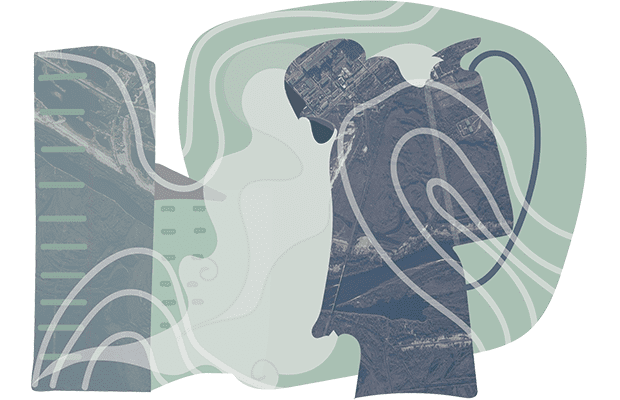The original version of this article, written in Chinese, appears here.
On the 26th of April 1986, the most serious nuclear disaster in history happened. Such was its magnitude that it was rated a seven – the highest severity – by the International Nuclear Event Scale.
The resounding boom of the explosion would forever change the fate of Ukraine and the Soviet Union, but on the night that it happened, people were still stuck in a hazy reverie of ignorance. A great mansion on the verge of collapse, the Chernobyl Nuclear Power Plant in Honour of Vladimir Lenin served as a symbol of the Soviet Union at the height of its status as a superpower.
At the same time, it came to mark the beginning of its downfall. The good and bad of human nature, its strengths and weaknesses, its simplicity and complexity – all interweaved together in this worker and proletariat lead country. The nuclear radiation emitted by the disaster not only caused a massive economic loss of almost three hundred billion dollars, but more tragically, the deaths of around four thousand people in the former Soviet countries, and sixteen thousand in the rest of Europe.
Fast forward to now: we are removed from the disaster by many years, Chernobyl has been made into an American miniseries by HBO, resonating with viewers from countries all over the world whose destinies are shared in the face of nuclear disaster. But at the same time, the validity of the series has been called into question. After glossing over and changing some historical details, some believe the series has become a cultural export which extolls the superiority of capitalism, all the while demeaning those who lived under socialism.
According to a BBC interview with an operator at the power plant who survived the disaster, the series contains several unreasonable exaggerations and embellishments. One scene in particular that comes to mind is the one showing a group of miners digging up a tunnel underneath the reactor to protect the residents who live around the power station. They need to clean a space for the heat switch to prevent liquid from seeping out of the melted core of the reactor into the surface water. If the surface water becomes contaminated by nuclear pollution, then the disaster would endanger the lives and health of millions more. In this scene, the workers strip their clothes until they are fully naked due to the extreme heat of their underground surroundings. But in reality, the workers, while taking off some of their clothes, were not stark naked. This has been perceived by some as showing the miners being deliberately humiliated, and consequently, evidence of the show disparaging the imperfect state of human rights under Socialism.
Indeed, this one scene was superfluous, and ultimately not necessary. But looking at it from another perspective, the show is a reflection of the director’s own awareness of the issue, and many other details, such as the problem of the nuclear reactor and the symptoms of radiation sickness, were all depicted to a highly accurate degree.
Unsurprisingly, in Russia, parts of this series have been cut out or outright prohibited. But if we are to talk about the degree to which the series depicts historical details, the scene with the naked miners can be interpreted in many different ways. In the scene, the reason why the miners took off their clothes was because of the blistering heat around them, and symbolises how in such an extreme environment, they do not have the luxury to bother with small trifles. Consequently, saying this scene is an example of the series, a product of Capitalism, attacking Socialism would be taking an overtly sensitive stance.
In the aftermath of Chernobyl, there was the problem of government officials avoiding responsibility for the mistakes which caused the disaster. However, this cannot be said to be limited to the Soviet Union. While the corruption that plagued the Soviet bureaucracy should be criticised, these problems have arisen in any country that has experienced a nuclear disaster, such as Fukushima in Japan and Pennsylvania in America. In many ways, the disaster could be argued to be an inevitable outcome of a complex bureaucratic system.
After watching Chernobyl, what we must reflect on is not only the conflict of ideology behind the scenes, but also how we deal with crises in our current system, and how we balance our own fate with that of our country. There is no doubt that political systems need to be constantly transformed and improved, and not be left to stagnate. When a single cog in a nation’s machinery becomes the scapegoat to conceal the failings of the system as a whole, then that national machinery is doomed to fall apart as other cogs fall apart one by one.





